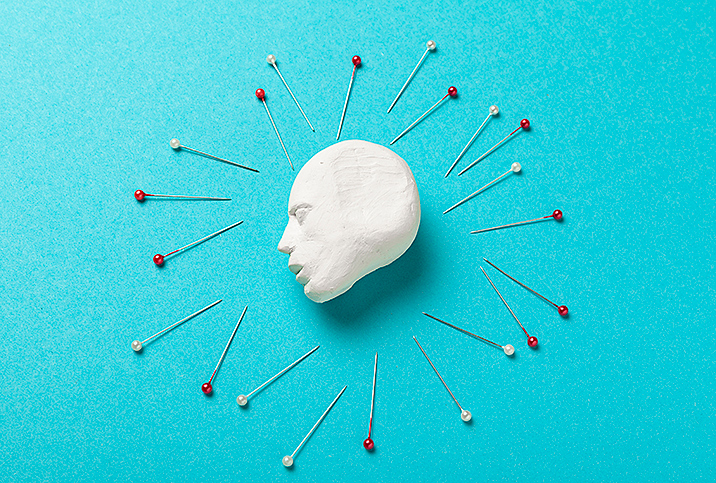Is There a Link Between Tinnitus and Erectile Dysfunction?

A National Health Interview Survey (NHIS) published in 2014 found that an estimated 11.2 percent of Americans experienced ringing in their ears, a condition that's known as tinnitus.
In 10 percent of these people, the experience severely impacts their quality of life, causing sleep problems, distress, poor concentration, depression and anxiety. Some clinical studies have even suggested a higher rate of sexual problems in patients with tinnitus.
A brief overview of tinnitus
If you hear noises like ringing or humming that are not coming from the outside world, it could be tinnitus. The sounds can be in one ear, both ears or inside your head, and can be constant or come and go.
Typical sounds caused by tinnitus include ringing, buzzing, hissing, whooshing, humming, throbbing, and/or music or singing. Most doctors think tinnitus results from either a mental or physical change, and is not necessarily related to a hearing issue.
If you think you have tinnitus, see your physician. They can refer you to the appropriate specialists to rule out other medical issues, assess your hearing and give you more detailed information about tinnitus and strategies to manage it.
Is erectile function secondary to tinnitus?
Petar Bajic, M.D., a urologist in the Center for Men's Health at the Glickman Urological and Kidney Institute in Cleveland, Ohio, and assistant professor of urology at the Cleveland Clinic Lerner College of Medicine of Case Western Reserve University, has a slightly different perspective on the association between tinnitus and erectile dysfunction (ED).
"I think more likely, both tinnitus and ED are the result of the same underlying causes rather than being directly related," Bajic said.
"When we think about ED specifically, the four most common causes are high blood pressure, high cholesterol, diabetes and tobacco use," he said. "High blood pressure and diabetes can also be contributing factors to tinnitus. So, it's important to know that tinnitus and ED might be associated, but one might not directly cause the other. There could be other underlying causes."
Of course, it's easy to dismiss the need for a primary care provider (PCP) if your symptoms aren't life or death. Furthermore, it's always awkward to discuss conditions that involve your sex life with your doctor. However, being open about your symptoms will help your PCP to establish root causes and find suitable treatment options for you as an individual.
"It's vital for clinicians to look at the holistic picture rather than just one problem," Bajic explained. "That way, we can better understand what the underlying cause might be."
So what's the link between tinnitus and ED?
The clinical study mentioned earlier states that their results detected an association between ED and tinnitus, however, it's not that straightforward.
Hashir Aazh, B.Sc., M.Sc., Ph.D., audiologist and specialist in tinnitus, hyperacusis and misophonia rehabilitation, explained the recent study results in more detail, including:
- Three percent of individuals who saw their doctors with a complaint of ED had a prior history of tinnitus.
- Two percent of the study control group matched for age and demographic characteristics, but without a complaint of ED, had a prior history of tinnitus.
- Researchers performed a logistic regression model, which showed that prior tinnitus increased the odds of seeking help for ED by a factor of 1.8, which was statistically significant.
- This correlation was sustained after considering the presence of hypertension, hyperlipidemia, diabetes, coronary heart disease and age group.
"The study does not show that tinnitus affects sexual function," Aazh concluded. "There are many factors that could have mediated the observed significant odds ratios. For example, patients who sought help for ED might have had higher anxiety and depression levels. Anxiety and depression have proven links with tinnitus. The authors did not adjust the regression model for mental health variables."
Tinnitus can lead to anxiety and depression, which in turn could cause a person to either develop erectile dysfunction or seek help for it.
"It is also possible that if a person takes medication for depression, it impacts sexual function," Aazh added.
"Tinnitus, anxiety and depression have a bidirectional relationship," Aazh said. "So, another explanation could be that ED led to anxiety in these individuals, which predisposed them to be affected by tinnitus."
"The findings from this study need to be validated by further research," Bajic said. "However, the relationship is well established regarding ED and cardiovascular disease, which can also be a cause of tinnitus. In fact, studies show that for men presenting with ED, it could be the first sign of cardiovascular disease, which might precede a heart attack by about five years."
Treatment options
"There is no definitive cure for tinnitus," Aazh said. "However, specialized cognitive-behavioral therapy (CBT) focused on tinnitus management helps people to manage their tinnitus well."
Cognitive behavioral therapy is a form of talk therapy that helps you address problems by changing how you think about things and your behavior. Interestingly, research also shows that CBT is an effective therapeutic approach to managing psychological ED, so if you're suffering both, it's a path you may want to pursue.
Tinnitus may also occur as a side effect of certain medications, such as aspirin and NSAIDs, benzodiazepines, tricyclic antidepressants and some antibiotics. Talk to your doctor about medications you're taking and alternatives that do not cause tinnitus.


















